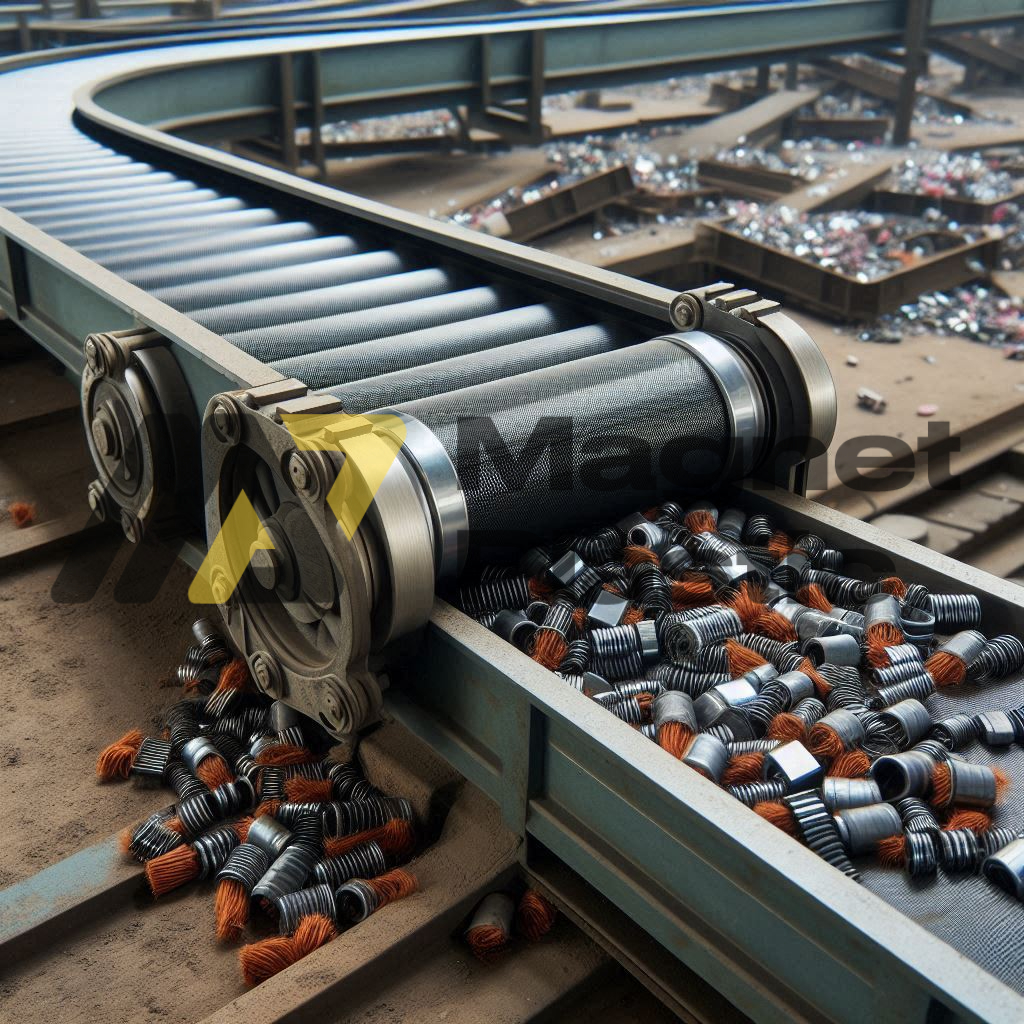Magnetic Pulleys: Efficiency and Innovation
Magnetic pulleys have established themselves as crucial components in various industrial sectors due to their ability to separate ferrous materials from other types of materials during manufacturing and recycling processes. This article delves into what magnetic pulleys are, how they work, their diverse applications, and the benefits they offer, highlighting their relevance in enhancing industrial efficiency and safety.
What Are Magnetic Pulleys?
Magnetic pulleys are devices designed primarily for conveyor systems and belts, used to separate ferrous metals from the conveyed material. These pulleys replace standard pulleys at the end of belts, containing powerful internal magnets that attract and retain metallic objects, allowing the rest of the material to continue without interruption.
How Magnetic Pulleys Work
The principle behind a magnetic pulley is simple yet highly efficient. As it rotates along with the conveyor belt, the magnetic pulley generates a magnetic field that attracts and captures ferrous materials. These materials remain on the belt’s surface until reaching the discharge point, where they are separated and deposited into a separate container or another transport system. This continuous process allows for the removal of metals without manual intervention, improving process efficiency and safety.
Applications of Magnetic Pulleys
Magnetic pulleys have applications across various industries due to their ability to enhance material purity and protect equipment from damage caused by unwanted metals.
- Recycling In the recycling industry, magnetic pulleys are essential for separating ferrous metals from mixed waste. This not only improves the quality of the recycled material but also ensures efficient recovery of metals, contributing to a more sustainable and cost-effective recycling process.
- Mining In the mining sector, these pulleys are used to separate metallic minerals from raw ore, increasing the purity of the final product and processing efficiency. This is especially important in the extraction of precious metals and other valuable materials.
- Food Industry In food production, magnetic pulleys ensure the safety and quality of the product by removing metallic particles that could contaminate the food. This is crucial for complying with strict food safety regulations and preventing public health issues.
- Manufacturing In manufacturing, magnetic pulleys protect machinery by removing unwanted metals from the incoming material, preventing damage to machines and reducing downtime, which enhances operational efficiency.
Benefits of Magnetic Pulleys
Magnetic pulleys offer numerous benefits that make them indispensable in many industrial processes.
- Increased Efficiency Automating metal separation reduces the need for manual intervention, increasing the speed and efficiency of the production process and allowing for faster and safer handling of materials.
- Equipment Protection Removing ferrous metals from the incoming material protects machinery from potential damage, reducing maintenance costs and extending equipment lifespan.
- Improved Product Quality The ability to separate metals significantly enhances the quality of the final product, whether in recycling, mining, or food production, which is crucial for meeting quality standards and increasing customer satisfaction.
- Sustainability Magnetic pulleys promote more sustainable industrial processes by enabling efficient and effective material separation, improving recycling efficiency, and reducing waste and environmental impact.
Future Innovations in Magnetic Pulleys
The field of magnetic pulleys is constantly evolving, with research focused on improving magnetic strength and separation efficiency. Future innovations may include the development of more powerful and lightweight magnets, as well as the integration of advanced detection technologies to optimize the separation process.
Conclusion
Magnetic pulleys are essential tools for improving efficiency and safety across various industrial sectors. Their ability to separate ferrous metals from other materials, protect equipment, and enhance product quality makes them a valuable investment for any operation handling large volumes of materials. As technology advances, magnetic pulleys will continue to play a fundamental role in optimizing industrial processes and promoting more sustainable practices.
